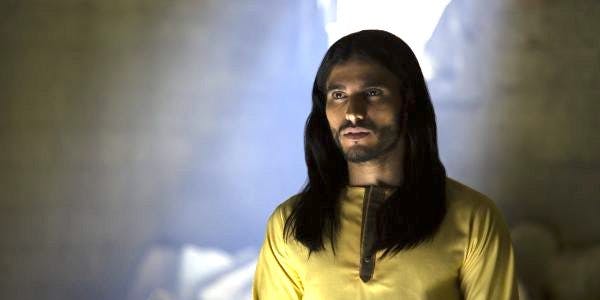
On Tuesday, Netflix released the trailer for a new religious thriller series, “Messiah.” The streaming service describes it as follows: “A wary CIA officer investigates a charismatic man who sparks a spiritual movement and stirs political unrest. Who exactly is he? And what does he want?” Given the name of the series, it’s not hard to figure out who our mysterious figure is supposed to be, even if the publicity to date has strenuously avoided using the name “Jesus Christ.”
While the character is never named in the trailer, he has been named elsewhere as “al-Masih.” At first, this seems straightforward – “al-Masih” is the equivalent in Arabic to “the messiah,” and is a name used in the Quran for Jesus. But “al-Masih” is also the name used for another figure, mentioned in Islam’s hadith, who will come claiming to be the messiah, but who is actually a force of evil – al-Masih ad-Dajjal, “the deceiving messiah.” Like the character in the Netflix series, the Dajjal reportedly will first appear in Syria and, through the use of Christ-like “miracles,” will amass a loyal army of deceived follows. The Dajjal is often equated with the Antichrist figure of Christian tradition.
Some Arabic-speaking viewers noticed the character’s name and quickly speculated that the show’s al-Masih will be revealed to be the Dajjal, a premise that seems to be supported by the show’s marketing. (“Who do you think he is?” says one tagline; the trailer itself features the phrase “will he convert you?” transforming into “will he con you?”) Derisive reactions abounded on social media, primarily centered around the apparent lack of awareness on Netflix’s part that more than 450 million people speak Arabic on a daily basis.
imagine watching an arabic murder mystery and there’s a character named Murder McMurderson
— idham (@frankoceanhafiz) December 5, 2019
Now, it’s possible that the critics have it wrong and the Dajjal legend won’t show up in the show at all. Possibly the character in the show is simply a con man or has delusions of grandeur; there is even a chance that the show will end up playing its premise straight and have al-Masih actually turn out to be the second coming of Jesus, though I doubt it. But the fact that, even before the series drops, viewers are commenting on how oblivious the creators seem to be toward the Muslim world says a lot about the intersections of power and ignorance in the media.
While most of the conversation about “Messiah” has centered around the name of the central character, it’s worth actually looking at the trailer to see what it has to say about the show’s relationship to the Middle East and the people who live there. The answer is, sadly, nothing good – and nothing unexpected. The viewpoint characters are a (white, American) CIA agent and a (white, American) pastor; Syria, where al-Masih first appears, is mostly an excuse to include a lot of gunfire and explosions, and the people who live there are only props.
It may be so obvious that there’s no point in saying it, but the trailer’s invitation to question the legitimacy of al-Masih is built on Orientalism; his ambiguity and untrustworthiness are directly correlated with the darkness of his skin, the foreigness of his accent, the fact that he reads as a Muslim despite purportedly being Jesus. Rather than using those traits as opportunity to consider the humanity of people from that part of the world, “Messiah” appears to be using them as ways to create distance and suspicion from its presumed white, American audience.

Mehdi Dehbi as al-Masih in “Messiah” [Netflix]
The message seems clear to me: what the Americans fear is that al-Masih is going to bring the violence and chaos that the Syrians have to endure to the United States. (“He’s leading desperate people… He could be creating an army,” as the trailer begins.) Human misery is tolerable as long as it’s happening over there. The alarms start sounding not when the character is walking around the Middle East, but when he shows up in Texas.
All of these details tie back to the controversy over the character’s name. The character’s name, “al-Masih,” is either a giveaway about a plot twist that any of the roughly 2 billion Muslims on the planet could predict, or it’s another way to make the character seem exotic and Other by playing on his ethnic difference from the white American protagonists. While one would expect “Messiah” to be infused with Christian privilege – it is a show about the potential Second Coming – ironically, that privilege mainly manifests in how it chooses to cast doubt on the validity of its Christ figure.
The Wild Hunt is not responsible for links to external content.
To join a conversation on this post:
Visit our The Wild Hunt subreddit! Point your favorite browser to https://www.reddit.com/r/The_Wild_Hunt_News/, then click “JOIN”. Make sure to click the bell, too, to be notified of new articles posted to our subreddit.